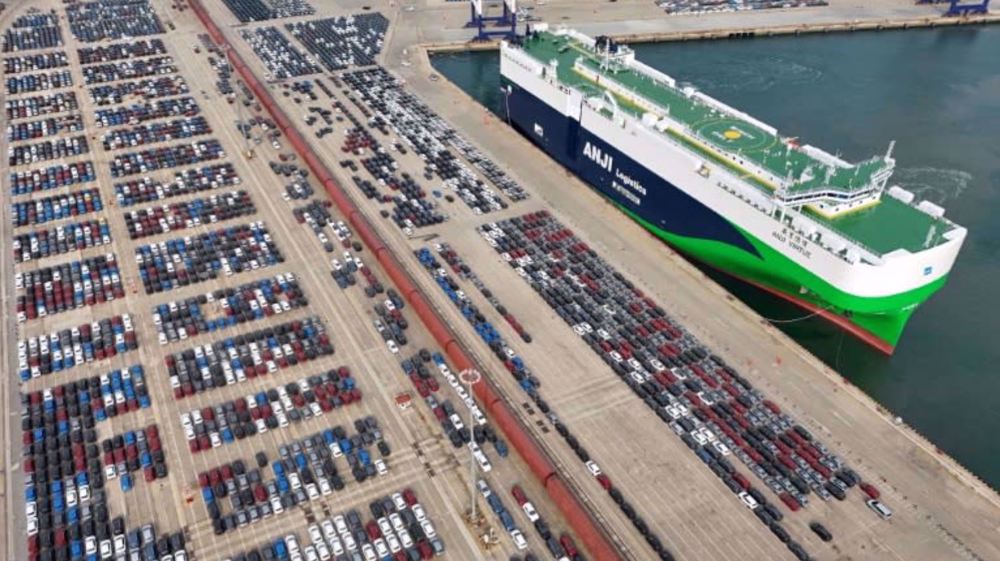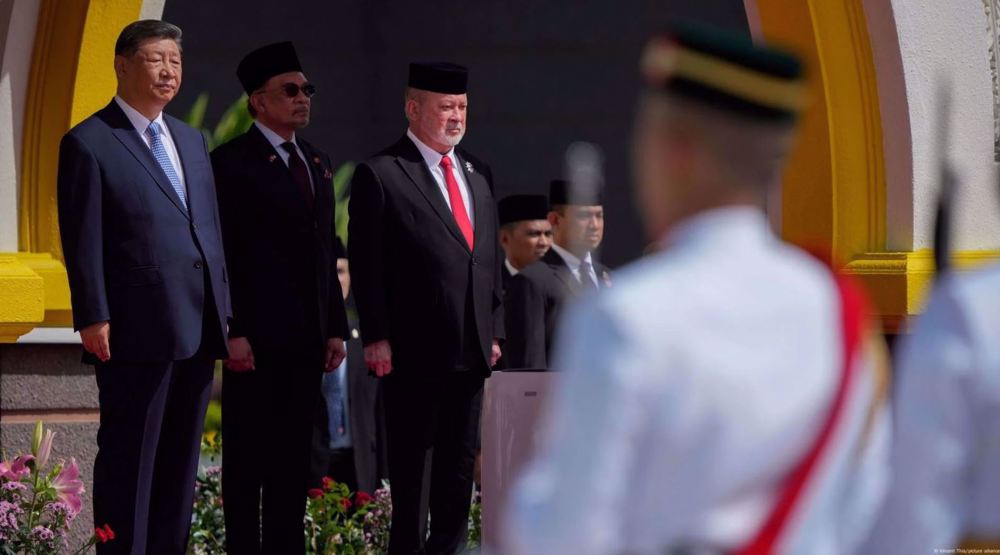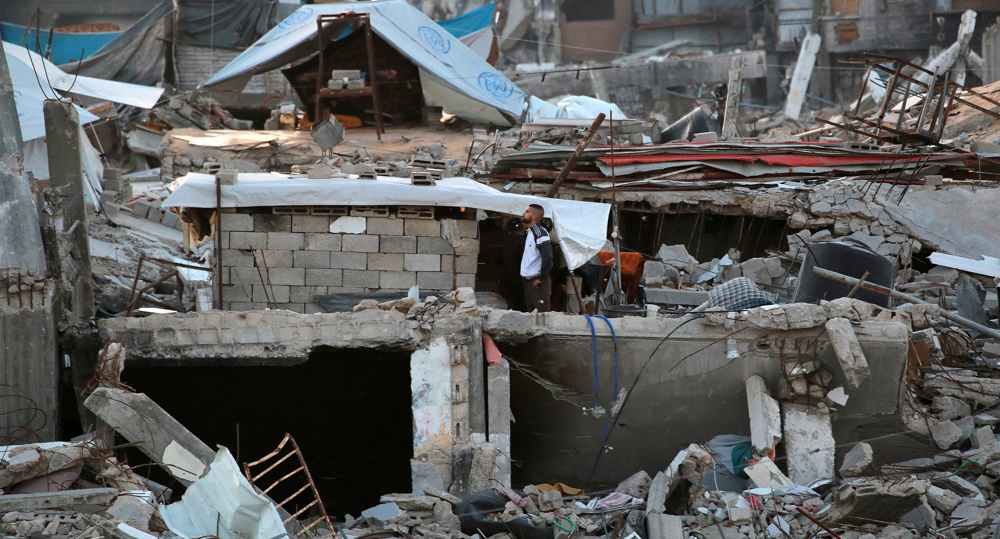Thousands of Australians protest on national day
Thousands of people have taken to the streets of several cities across Australia despite coronavirus restrictions to protest on the country’s National Day, which marks the anniversary of the British colonization of the country.
Thousands of people gathered at a central Sydney park on Tuesday, defying police threats of fines and arrests for breaching limits on large crowds.
The protesters chanted slogans such as “Sovereignty was never ceded” and “No justice, no peace.”
Other demonstrators carried placards that read “Not a Date to Celebrate” and “Black Lives Matter.”
Police described the participants in the protests as largely peaceful, but it said five people had been detained, including one who was charged with attacking a police officer.
“For us, (the day) represents cultural genocide. Our families being ripped apart. Years and years of disease and famine. And the intergenerational impacts of that are still being felt today,” Gomeroi man Dylan Booth told AFP.
Australians stage rallies on the national day, which falls on January 26, every year to draw attention to the injustices faced by the indigenous people, who mark it as “Invasion Day,” urging the government to change the date of the celebration.
The Australia Day commemorates the arrival of the first British settlers in 1788, which is viewed by indigenous Australians — who have inhabited the land for 65,000 years — as the beginning of two centuries of pain and suffering.
Protests also took place in other major cities across Australia on Tuesday, including in Melbourne, where an estimated 10,000 people took part in a march through the streets of the city.
Organizers called on attendees to wear face masks and maintain physical distance where possible.
“People (are) having barbecues and shrimp on the barbie and celebrating the death and destruction of these people, the oldest continuing living culture in the world,” The Age newspaper cited Indigenous Senator Lidia Thorpe as telling the crowd.
Aboriginals remain the most disadvantaged group among Australians, with higher rates of poverty, ill health, and imprisonment than any other community in the country.

China ‘firmly’ opposes countries making trade agreements with US at its expense

China says stands with Malaysia, region in face of unilateralism

Maldives bans entry of Israelis in ‘resolute solidarity’ with Palestinians
Over 100 rabbis, cantors slam Trump for pro-Palestine campus crackdown
Nearly 30 Palestinians killed in fresh Israeli strikes on Gaza
VIDEO | Press TV's news headlines
FBI, local police raid homes of pro-Palestine activists in Michigan
Trump ratings low amid US economic turmoil
VIDEO | Trump tariffs: A wrecking ball!
Israel deprives Gazans of basic needs for ‘survival’: UN
South Africa has no choice but to support resistance against Israel's genocide in Gaza






 This makes it easy to access the Press TV website
This makes it easy to access the Press TV website